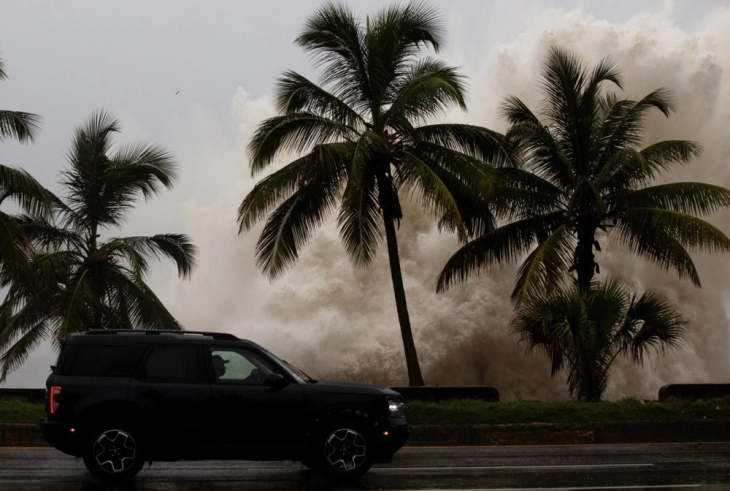Six dead after Hurricane Beryl brings devastation to Caribbean
- Six people have died in the south-eastern Caribbean after Hurricane Beryl, the strongest of its kind ever recorded at this time of year, wreaked havoc across several islands.
- Post By Ivan Kolekevski
- 08:09, 3 July, 2024

Havana, 3 July 2024 (dpa/MIA) - Six people have died in the south-eastern Caribbean after Hurricane Beryl, the strongest of its kind ever recorded at this time of year, wreaked havoc across several islands.
Beryl, which was temporarily upgraded to a "potentially catastrophic" category 5 - the highest level - late on Monday, has since lost some of its intensity, the US National Hurricane Center (NHC) said on Tuesday afternoon.
With sustained maximum winds of 250 kilometres per hour, Beryl is now a category 4 again, though just below the threshold of 251 km/h for category 5, according to the NHC.
Beryl made landfall on Monday morning in the south-eastern Caribbean island of Carriacou, which is part of Grenada, as a category 4 hurricane.
The storm brought devastation to Grenada's Carriacou and Petite Martinique, destroying homes and cutting power and communication lines.
Neighbouring island states were also battered by heavy rains and strong winds, including St Vincent and the Grenadines and St Lucia.
The number of confirmed deaths from the hurricane has risen to six, with three reported from Grenada, two from Venezuela and one from St Vincent and the Grenadines.
Venezuela's Vice President Delcy Rodríguez was struck by a falling tree during Hurricane Beryl, according to the government.
"She was hit hard, but she is conscious," Venezuela's President Nicolás Maduro said in a speech to supporters.
Rodríguez had travelled to the northern coastal state of Sucre to oversee the clean-up of damage caused by Beryl.
A strong gust of wind caused several trees to fall, and one of them hit Rodríguez, Maduro said. "She is strong. She has just written to me and sends her regards."
UN spokesman Stephané Dujarric told journalists in New York that seven agencies based in Grenada and nine in St Vincent and the Grenadines "will be augmented by additional UN emergency teams in the coming days."
"Logistics are going to be a challenge, given the islands' dispersal, damaged infrastructure and limited accessibility," he said.
The worst may not yet be over as Beryl is expected to bring "life-threatening winds and storm surge to Jamaica on Wednesday and the Cayman Islands Wednesday night and Thursday," according to the NHC's latest advisory.
Jamaica's Prime Minister Andrew Holness called on the population to stock up on canned food and drinking water and seek shelter if necessary.
Beryl is the first hurricane of the season which starts at the beginning of June.
According to experts, never before has a hurricane of this magnitude been recorded in the Atlantic this early in the year, with the NHC recording temporary windspeeds of up to 270 km/h.
Beryl strengthened from a tropical storm to a category 4 hurricane in less than 24 hours on Sunday. Hurricane season in the Atlantic usually peaks around September, when water temperatures are highest.
The US National Oceanic and Atmospheric Administration (NOAA) expects an unusually strong hurricane season this year amid rising water temperatures due to climate change and La Niña, a season of cooler water temperatures in the Pacific expected to set in this year.
UN spokesman Dujarric said the UN was "very much appealing for strong international solidarity" with Grenada, Saint Vincent and the Grenadines and the other islands that have been hit by the hurricane.
"These small island states that the Secretary-General [António Guterres] has often visited are again bearing the brunt of natural disasters. And it is critical that we see international solidarity," he added.
Photo: EPA







